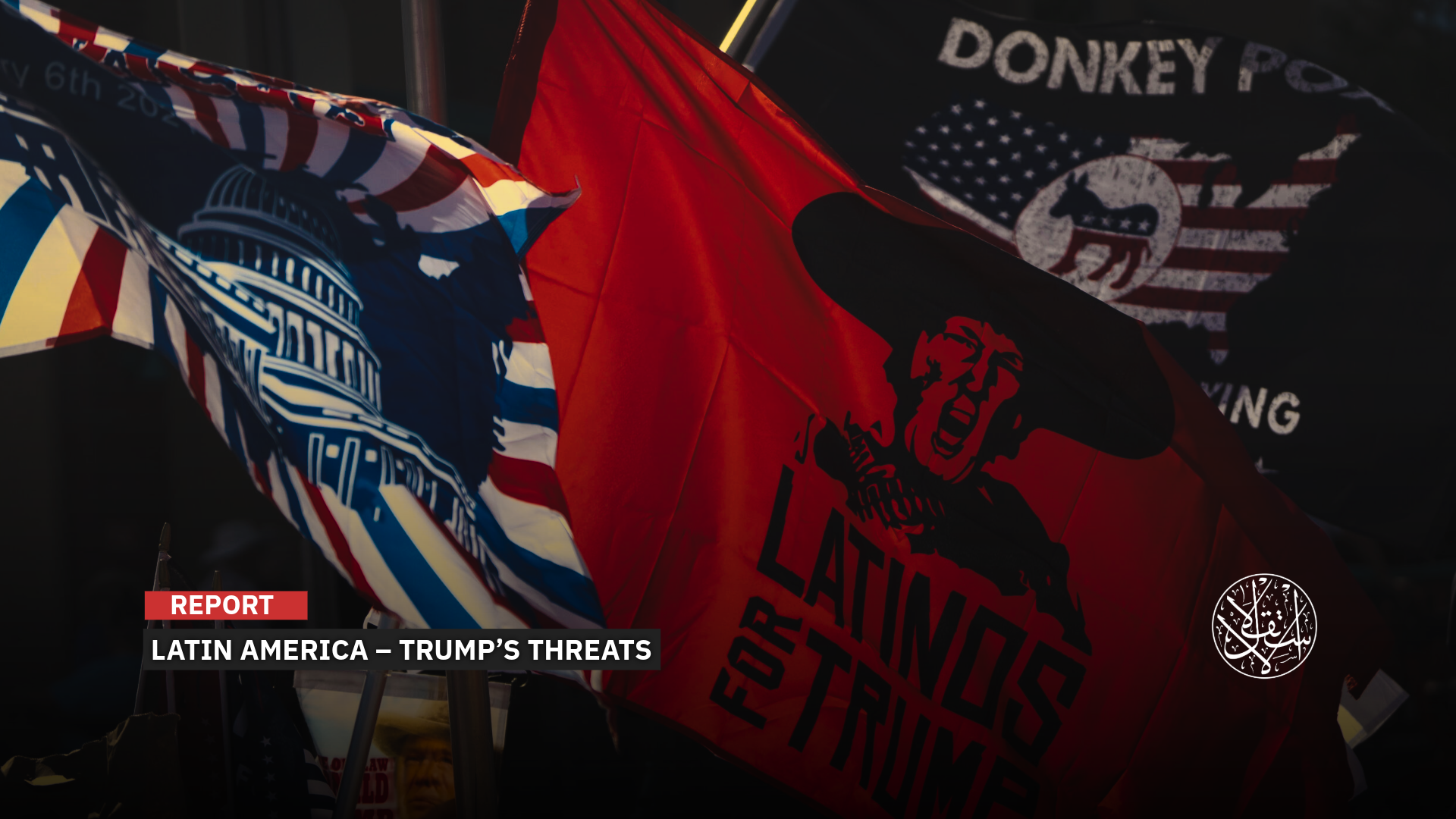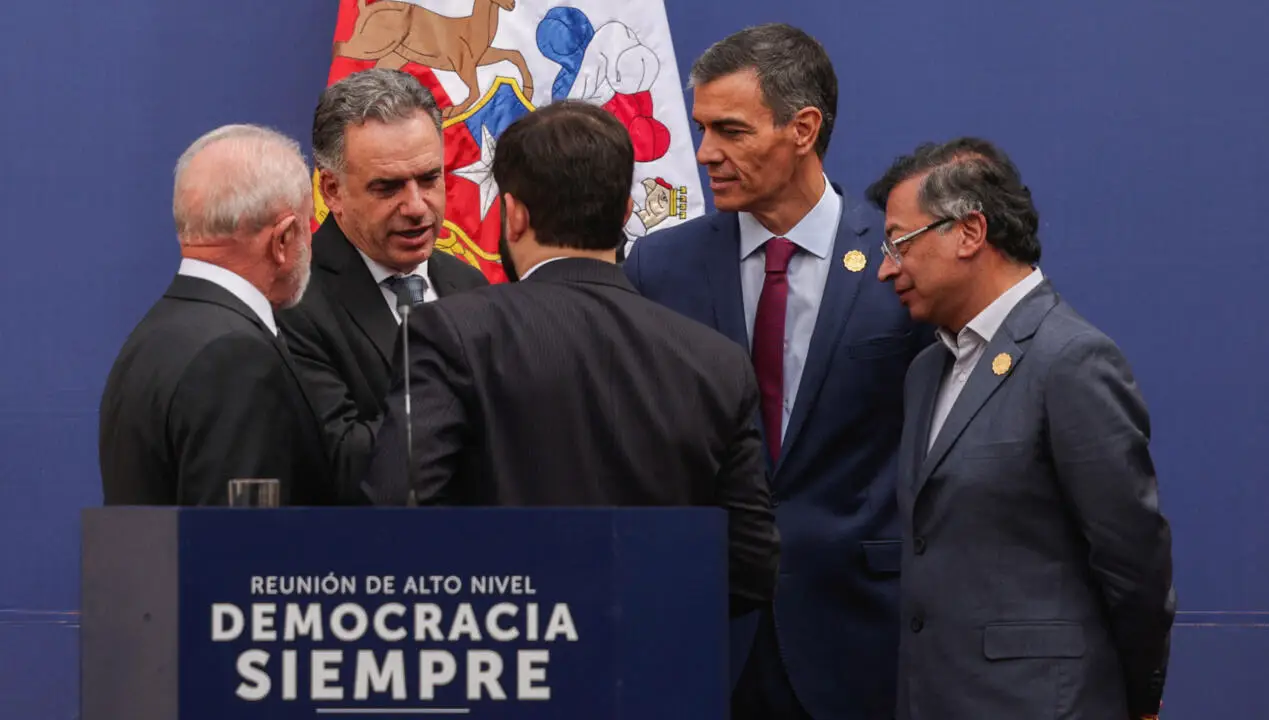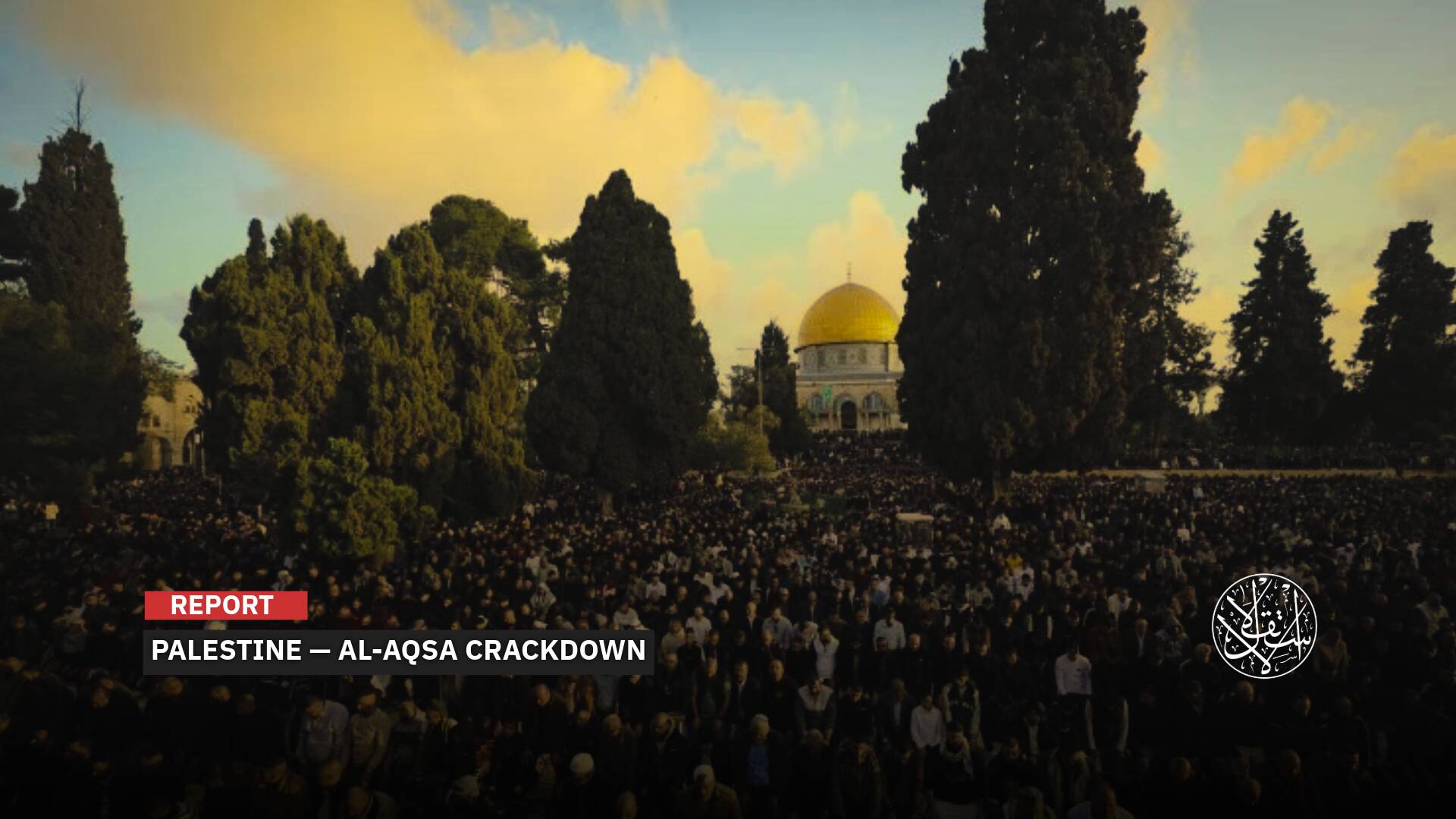The Latin American Left Confronts US Arrogance: Temporary Deal or Strategic Alliance?

“Trump sees Latin America as a source of illegal migration, crime and drugs.”
The relationship between the U.S. and Latin America has long been a complex axis of tensions and intertwined interests, with the roots of American hegemony stretching back to the 19th century.
However, Donald Trump's arrival at the White House in 2017 added a new dimension of open hostility toward the countries of South America, particularly with his adoption of aggressive and confrontational policies, ranging from racist rhetoric, harsh sanctions, aid cuts, and diplomatic crises.
Since then, Trump has also sought to encourage his far-right counterparts in the region to reassert their authoritarian tendencies in the region.
However, since 2018, Latin America has witnessed a widespread pink tide, while other leftist rulers have been in power in Cuba, Venezuela, and Nicaragua for several years.
Estimates indicate that the leftist tide in Latin America finds its political and strategic depth in a long-standing political and intellectual heritage in these countries, which have suffered greatly from American interference in their internal affairs.
In this context, Trump's second term has witnessed increased US interference in Latin American affairs, putting him at odds with his ideological opponents on the left.
Trump declared a few months ago that Latin American countries need us much more than we need them, embodying a transactional approach that ignores growing regional autonomy.
Strategic Alliance
On September 23, from the most influential platform in the world, Colombian President Gustavo Petro, Chilean President Gabriel Boric, and Brazilian President Luiz Inacio Lula da Silva launched strong and clear denunciations of US policies.
Observers viewed this approach as an expression of a near-total Latin American strategic shift toward political and economic actors in the Eastern bloc, such as China and Russia.
The three presidents criticized US policies on a range of issues, including climate change, trade sanctions, and violations of international law in Palestine and the Southern Caribbean.
Petro, whose relationship with the White House has been strained since Trump took office, addressed the genocide in Gaza, which his administration has repeatedly condemned and imposed sanctions on “Israel”.
“Trump is complicit in the Israeli genocide in Gaza, and we must shout it out loud again and again,” he said.
He called for the formation of a global army to liberate Palestine under the umbrella of ‘Uniting for Peace’, in what was considered the most powerful statement ever made by the global left.
He also compared Washington's actions in Palestine to Trump's deadly military campaign against drug smuggling boats in Venezuela.
He also criticized Washington's decision to revoke his country's accreditation as a cooperating partner on drugs last week, noting that the real drug traffickers are in New York and Miami.
In his speech, Lula da Silva indirectly criticized his American counterpart, praising Brazil's institutions for prosecuting his predecessor and close Trump ally, Jair Bolsonaro.
In July, Washington imposed sanctions on several Supreme Court judges presiding over the case of Bolsonaro, who was recently sentenced to 27 years in prison for a 2023 coup attempt.
He also criticized the economic sanctions imposed by the White House on his country, which now pays 50% tariffs on its exports to the U.S.
In turn, Boric delivered an impassioned speech filled with historical references and calls for action.
He focused on the need for peace and justice, condemning violence in Palestine, Iran, and Ukraine.
He also alluded to Trump's controversial comments on climate change, saying, “They claimed here today that global warming doesn't exist. That's not an opinion, it's a lie, and we must fight lies.”

Aggressive Approach
From the U.S.-Mexico border to Patagonia, Trump is punishing his opponents with hefty tariffs, airstrikes, and verbal attacks, while offering security assistance and economic deals to those he considers friends.
The region is vital to Trump's goals of stemming migration and the flow of drugs into the U.S., while he seeks to counter China, which has deepened economic and diplomatic ties in Latin America over the past two decades.
According to the Wall Street Journal, no US president has exerted as much pressure on the region since the height of the Cold War, when Ronald Reagan focused his efforts there on battling left-wing Central American insurgencies and the Sandinista regime in Nicaragua.
Before Trump, the U.S. supported its allies in Latin America while isolating and sanctioning countries it deemed authoritarian and hostile (Cuba, Venezuela, and Nicaragua).
But from the first day of his second term, Trump and his new team reversed decades of policy, adopting an aggressive approach, most notably by asserting China's control over the Panama Canal and emphasizing that the U.S. would seek to retake the canal by force if necessary.
On January 21, Trump placed Cuba back on the list of state sponsors of terrorism and imposed additional sanctions, to which the Cuban president responded by calling these measures arrogant.
For his part, Trump also attacked Mexico, pressuring its President, Claudia Sheinbaum, to allow the US military to take a leading role in combating the cartels there, and renaming of the Gulf of Mexico to the Gulf of America.
Trump also threatened to impose a 25% tariff on Colombia if its leftist and former guerrilla leader, Petro, did not allow the arrival of deported immigrants from the U.S., forcing Colombia to acquiesce.
The US State Department recently revoked Petro's visa after he publicly called on US soldiers to disobey Trump during a pro-Palestinian protest in New York, further straining relations between Washington and Bogota.
Among others, former Costa Rican President Oscar Arias, a Nobel laureate, had his visa revoked for comparing Trump's authoritarian tendencies to those of a Roman emperor, as did former Panamanian President Martin Torrijos, another Trump critic.
Today, Trump is tightening the military noose on Venezuela in an attempt to topple the government of Nicolas Maduro, who was inaugurated for a third term on January 10, with threats to stop buying oil from the country, exacerbating the economic crisis.
Nicaragua has also seen economic restrictions aimed at weakening the government of President Daniel Ortega.

Ideology and Interests
In contrast, Trump has cultivated close ties with anti-immigrant Salvadoran President Nayib Bukele, who describes himself as the most wonderful dictator in the world.
Bukele is the only Latin American leader to have been formally received at the White House since Trump’s return, where Trump praised him, stating: “You are helping us and we appreciate it.”
Right-wing Argentine President Javier Milei termed Trump’s return to office as the greatest political comeback in history and in turn was praised as a MAGA person by Trump.
He attended Trump’s second inaugural in Washington and maintains links with figures in Trump’s orbit.
He followed the U.S. in withdrawing from the World Health Organization and has raised the possibility of withdrawing from the Paris climate change accord.
When the latest deal providing Argentina with $20 billion in fresh funding was concluded, the Argentine press was quick to attribute success to the Milei-Trump relationship.
Jair Bolsonaro, whose 2019-2022 term as Brazil’s President overlapped with Trump’s first term, had a close relationship with Trump and relished being known as the Trump of the tropics.
The relationship between Trump and the populist right in Latin America is a mix of ideology and national interests on both sides (and self interest in the case of Bolsonaro).
Trump’s agenda prominently includes clamping down on illegal immigration from Latin America.
Other Latin American conservative leaders would like links with Trump.
Ecuador’s Daniel Noboa campaigned on a promise to deal with surging violence, and then put troops on the street and made mass arrests.
When he ran for re-election in 2025, he met with Trump at Mar-a-Lago shortly ahead of the runoff vote.
Panama’s Jose Raul Mulino has defused tensions with Trump by not renewing the contracts of Chinese firms to operate port facilities, but the relationship is likely to remain strained.

Pink Tide
US intelligence and political sources have urged the Trump administration not to underestimate the leftist tide sweeping Latin American capitals, nor to place too much weight on the existing political and economic differences between them.
US think tanks have confirmed that the political and economic choices adopted by Brazil’s Lula, Colombia’s Petro, Chile’s Boric, and Uruguay’s Yamandu Orsi could lead to fundamental changes in the Latin American landscape.
The previously known trends of Latin American leaders were limited to rejecting and denouncing US policies, but the four Latin American presidents are now in the process of formulating a comprehensive strategic policy.
Their strategy is based on political and economic rapprochement with China and Russia, a political alliance against populism and the far right, a strong focus on environmental and climate issues, and a rejection of Israeli policies clearly supported by Washington.
Observers believe that these four policies and orientations cannot be interpreted as temporary agreements or converging interests. Rather, they represent the solid core of a Latin American club capable of transforming into a political alliance and, from there, a broader strategic alliance.
Last July, the presidents of Chile, Colombia, Brazil, and Uruguay, along with Spanish Prime Minister Pedro Sanchez, signed a declaration to defend democracy and human rights and combat the far right and populism worldwide.
The five leaders pledged to form a wall against authoritarianism and polarization in the world, calling for a renewal of the concept of multipolarity, countering media disinformation, particularly on climate issues, and combating the ideologies of the far-right.
According to observers, the Latin American path toward independence from Washington is taking root, with these capitals adopting radical decisions and positions against Israel in its war against the Gaza Strip, and against Washington, which supports it logistically, politically, and militarily.

China has found in Washington’s behavior a potential opening for further expanding its influence, stepping up its efforts to court regional governments.
As a result, Latin America has now become a primary battleground in the larger geopolitical contest between the U.S. and China, already the top trading partner of many South American countries.
By contrast, Trump’s approach is driven sharply by ideology and personal relationships. His animosity is on full display against any government that leans left and against any leader who dares to criticize him, regardless of their political affiliation.
The Intercept considered Trump's escalation to be in the context of Washington's renewed focus on Latin America as a source of vital resources.
The region holds 31% of the world's fresh water, 60% of its lithium in the Lithium Triangle (Argentina, Bolivia, and Chile), as well as oil, copper, and gold in Venezuela.
Washington has repeatedly and directly called on all Latin American countries to withdraw from China's Belt and Road Initiative.
Russia and China threaten Washington's influence through alliances with Cuba, Nicaragua, Peru, Venezuela, Brazil, Chile, Mexico, and Argentina.











